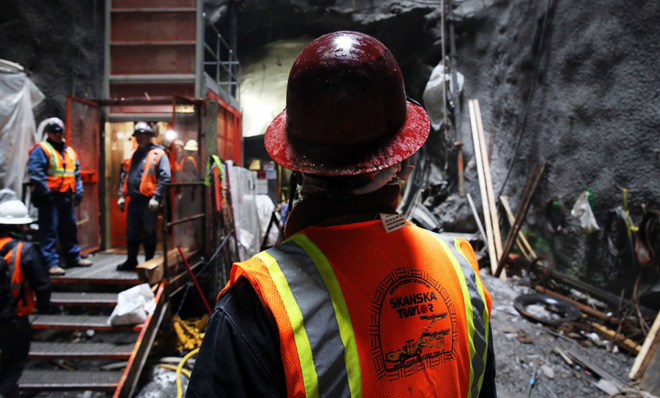What can be done about January's disappointing jobs numbers?
We can't just assume that job growth will bounce back

A free daily email with the biggest news stories of the day – and the best features from TheWeek.com
You are now subscribed
Your newsletter sign-up was successful
The January jobs report is out, and it's a big disappointment.
The economy added just 113,000 jobs in January, a big miss below the surveyed Wall Street estimate of 180,000 new jobs. That's little better than the disappointing 75,000 (revised up from 74,000) jobs that were added in December.
The unemployment rate fell to 6.6 percent from December's 6.7 percent rate, while the labor force participation rate rose to 63 percent from 62.8 percent.
The Week
Escape your echo chamber. Get the facts behind the news, plus analysis from multiple perspectives.

Sign up for The Week's Free Newsletters
From our morning news briefing to a weekly Good News Newsletter, get the best of The Week delivered directly to your inbox.
From our morning news briefing to a weekly Good News Newsletter, get the best of The Week delivered directly to your inbox.
The best gains came in the construction industry, which added 48,000 jobs, professional and business services, which added 36,000, leisure and hospitality, which added 24,000, and manufacturing, which added 21,000. Education and healthcare lost 6,000 jobs, while government shed 29,000 employees.
Both December and January's figures were marred by bad weather. In December, an unseasonably high 273,000 people with jobs weren't working because of the bad weather. In January, 262,000 weren't.
But can we really treat that as an excuse for two months in a row of disappointing reports? Maybe not. Both months had unseasonably cold weather and more storms than usual, so the February and March reports should give us a better idea of the real state of the job market. Still, it is a bad idea to assume that the job market is still recovering at a decent clip after two months of bad results. Weather is a real world variable that can't just be assumed away. And even if the weather improves in February or March, we can't just assume that job growth will immediately bounce back.
That has important policy ramifications, on two fronts.
A free daily email with the biggest news stories of the day – and the best features from TheWeek.com
First, ObamaCare. The CBO estimates that the Affordable Care Act could lower employment by the equivalent in hours of two million full-time workers by 2017. Of course, losing the equivalent in hours of two million full-time workers isn't the same thing as losing two million jobs and the CBO's estimate could be wrong, so more research is needed to see if fear of ObamaCare is a factor hurting hiring. Now, I'm all for universal health care, but the early signs are that the ACA could be slowing hiring. And if it is, more needs to be done to encourage businesses to take on workers, like offering more and bigger tax breaks for hiring.
Second, the Fed decided last month to continue tapering its quantitative easing bond purchases, even after one bad jobs report. Can it do the same for another month? With inflation still almost a full percentage point below the Fed's target rate of 2 percent the Fed has the space to wait for a month. Two bad jobs reports should be enough to force the Fed to adopt a wait-and-see attitude. And emerging markets like Argentina and Turkey — in turmoil partially as a result of tapering fears — could use a break from tapering, too.
John Aziz is the economics and business correspondent at TheWeek.com. He is also an associate editor at Pieria.co.uk. Previously his work has appeared on Business Insider, Zero Hedge, and Noahpinion.